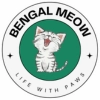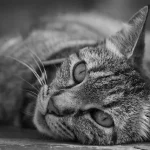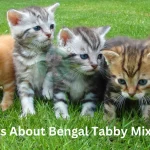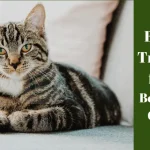Best Diet for Bengal Cats: Optimal Nutrition Tips
The best diet for Bengal cats includes high-protein, grain-free food with real meat as the primary ingredient. Fresh water should always be available.
Bengal cats are active and energetic, requiring a diet that supports their high energy levels. High-quality protein sources like chicken, fish, or turkey are essential for muscle development and overall health. Avoid fillers such as corn, wheat, and soy, which can lead to digestive issues.
Wet food can help with hydration, while dry kibble can support dental health. Supplements such as omega-3 fatty acids can promote a shiny coat and healthy skin. Proper nutrition is crucial to maintaining the vitality and well-being of your Bengal cat, ensuring they thrive and remain active.
Introduction To Bengal Cat Nutrition
Bengal cats are active and playful pets. Their diet is crucial for their health. A proper diet ensures they stay energetic and healthy. Understanding their needs helps in choosing the best food.
Importance Of Diet
The right diet impacts a Bengal cat’s health. It affects their growth, energy, and overall well-being. A balanced diet helps them maintain a shiny coat and strong muscles.
Poor diet choices can lead to health issues. These include obesity, diabetes, and digestive problems. It’s essential to choose high-quality food for Bengal cats.
Unique Nutritional Needs
Bengal cats have unique nutritional needs. They require a high-protein diet. Their ancestors were wild cats, so they need meat-based food.
Here’s a table highlighting the key nutritional components for Bengal cats:
| Nutrient | Requirement |
|---|---|
| Protein | High |
| Fats | Moderate |
| Carbohydrates | Low |
| Vitamins and Minerals | Essential |
Bengal cats also need taurine. It’s an amino acid crucial for their heart and vision. Their diet must include this nutrient.
Here are some tips to keep in mind:
- Feed them high-quality, meat-based foods.
- Avoid foods with fillers like corn and soy.
- Ensure their diet includes taurine.
Meeting these needs ensures your Bengal cat remains healthy and happy.
Protein-rich Foods
Bengal cats are known for their energy and muscular build. To maintain their health, they need a diet rich in protein. A protein-rich diet keeps them active and supports their overall well-being. This section covers the best protein-rich foods for Bengal cats.
Animal-based Proteins
Animal-based proteins are essential for Bengal cats. They provide the necessary amino acids. These proteins help in muscle growth and repair.
- Chicken: A lean source of protein that cats love.
- Fish: Rich in omega-3 fatty acids, good for skin and coat.
- Beef: High in iron and other essential nutrients.
- Turkey: A low-fat protein source, easy to digest.
Protein Sources To Avoid
Not all protein sources are good for Bengal cats. Some can be harmful. It’s crucial to know which ones to avoid.
| Protein Source | Reason to Avoid |
|---|---|
| Pork | High in fat, may cause digestive issues. |
| Dairy Products | Many cats are lactose intolerant. |
| Processed Meats | Contain additives and high salt content. |
Essential Vitamins And Minerals
Bengal cats are active and playful. They need a balanced diet to stay healthy. Essential vitamins and minerals play a big role in their well-being. Let’s explore the key vitamins and important minerals that Bengal cats need.
Key Vitamins
Vitamins are crucial for Bengal cats. They help in growth, vision, and overall health.
- Vitamin A: Supports vision and immune function. Bengal cats need it for healthy eyes.
- Vitamin D: Helps in calcium absorption. It is vital for strong bones.
- Vitamin E: Acts as an antioxidant. It protects cells from damage.
- Vitamin K: Essential for blood clotting. It helps in wound healing.
- Vitamin B Complex: Includes B1, B2, B3, B6, B12, and folic acid. These vitamins support energy production and brain function.
Important Minerals
Minerals are just as important as vitamins. They ensure Bengal cats grow strong and stay healthy.
| Mineral | Function |
|---|---|
| Calcium | Builds strong bones and teeth. It is essential for muscle function. |
| Phosphorus | Works with calcium. It supports bone health and energy storage. |
| Magnesium | Supports muscle and nerve function. It also helps in energy production. |
| Potassium | Maintains fluid balance. It is crucial for heart and muscle function. |
| Iron | Helps in oxygen transport. It is vital for energy and immune function. |
Ensure your Bengal cat’s diet includes these essential vitamins and minerals. This will keep them active, healthy, and happy.
Healthy Fats
Healthy fats are essential for Bengal cats. They provide energy, support growth, and ensure a shiny coat. Including the right fats in their diet promotes overall well-being. Let’s explore the best types of healthy fats and their benefits.
Types Of Healthy Fats
- Omega-3 Fatty Acids – Found in fish oil and flaxseed. These fats reduce inflammation and support brain health.
- Omega-6 Fatty Acids – Present in chicken fat and sunflower oil. They are crucial for skin health and coat quality.
- Animal Fats – Found in meat sources like chicken and beef. These fats are highly digestible and provide energy.
- Plant-Based Fats – Found in oils like coconut and olive oil. They offer variety and additional nutrients.
Benefits Of Fats
- Energy Source – Fats provide a concentrated source of energy. Bengals are active and need energy.
- Skin and Coat Health – Fats keep the skin moist and the coat shiny.
- Brain Development – Omega-3 fatty acids support brain function, especially in kittens.
- Inflammation Reduction – Omega-3s help reduce inflammation and support joint health.
- Fat-Soluble Vitamins – Fats aid in the absorption of vitamins A, D, E, and K.
Ensure your Bengal cat gets a balanced diet with healthy fats. This will support their active lifestyle and keep them happy and healthy.
Hydration Needs
Bengal cats need proper hydration for their overall health. Understanding their hydration needs helps in keeping them healthy and happy. Proper hydration aids digestion, kidney function, and overall wellness.
Water Intake
Bengal cats need constant access to fresh water. Always keep their water bowl clean and filled. Cats generally prefer running water, so consider a pet water fountain.
Monitor their water intake. A cat typically drinks about 3.5 to 4.5 ounces of water per 5 pounds of body weight.
Wet Vs. Dry Food
Choosing between wet and dry food affects your Bengal cat’s hydration.
| Aspect | Wet Food | Dry Food |
|---|---|---|
| Water Content | 75-80% | 10-12% |
| Hydration Benefit | Helps keep cats hydrated | Less effective for hydration |
| Feeding Frequency | Multiple times a day | Can be left out longer |
Wet food offers higher water content, ensuring better hydration. Dry food can be convenient but doesn’t provide much water.
Consider a mixed diet. This ensures your Bengal cat gets the benefits of both wet and dry food.
- Provide fresh water daily.
- Use a pet water fountain.
- Monitor water intake.
- Offer wet food for added hydration.
Avoiding Common Allergens
Feeding your Bengal cat the right diet is crucial. Allergens can cause serious health issues. This section helps identify and avoid common allergens. It also suggests safe alternatives.
Identifying Allergens
Some cats are sensitive to certain ingredients. The most common allergens for Bengal cats include:
- Grains: Wheat, corn, and soy can cause allergies.
- Dairy: Many cats are lactose intolerant.
- Artificial Additives: Colors and preservatives can be harmful.
- Chicken: Surprisingly, chicken is a common allergen.
Watch for symptoms like itching, vomiting, and diarrhea. Consult your vet if you suspect an allergy.
Safe Alternatives
Choosing the right food helps keep your Bengal cat healthy. Here are some safe alternatives:
| Common Allergen | Safe Alternative |
|---|---|
| Grains | Grain-free options like sweet potatoes |
| Dairy | Lactose-free milk |
| Artificial Additives | Natural preservatives like vitamin E |
| Chicken | Turkey or duck |
Always read labels carefully. Opt for high-quality, natural ingredients. Your Bengal cat deserves the best!
Feeding Schedule
Ensuring your Bengal cat follows a proper feeding schedule is crucial. This helps maintain their health and energy levels. A structured feeding routine can make a significant difference in your Bengal’s well-being.
Meal Frequency
Bengal cats are active and require regular meals. It is recommended to feed them three to four times daily. This helps maintain their energy levels throughout the day.
- Morning: 7 AM
- Midday: 12 PM
- Afternoon: 4 PM
- Evening: 8 PM
Ensure that each meal is spaced out evenly. This prevents overeating and helps digestion.
Portion Control
Proper portion control is essential for Bengal cats. Overfeeding can lead to obesity and health problems. Use a measuring cup to ensure correct portions.
| Age | Portion Size |
|---|---|
| Kitten (up to 1 year) | 1/4 to 1/2 cup per meal |
| Adult (1-7 years) | 1/2 to 3/4 cup per meal |
| Senior (7+ years) | 1/4 to 1/2 cup per meal |
These portions ensure your Bengal cat gets the right amount of nutrients. Adjust portions based on activity level and weight. Always consult your vet for personalized advice.
Supplements And Treats
Supplements and treats play a crucial role in maintaining the health of Bengal cats. These additions to their diet ensure they receive necessary nutrients and enjoy their meals. Understanding the right supplements and healthy treat options can make a significant difference.
Necessary Supplements
Bengal cats need specific supplements to stay healthy. Below is a list of essential supplements:
- Taurine: Essential for heart and eye health.
- Omega-3 Fatty Acids: Promotes a shiny coat and healthy skin.
- Probiotics: Supports digestive health and boosts the immune system.
- Calcium: Important for strong bones and teeth.
Including these supplements ensures your Bengal cat remains active and healthy. Consult your vet for the right dosage and type of supplements for your Bengal cat.
Healthy Treat Options
Offering healthy treats can make your Bengal cat’s diet more enjoyable. Here are some healthy treat options:
| Treat | Benefits |
|---|---|
| Cooked Chicken | High in protein, promotes muscle growth. |
| Freeze-Dried Fish | Rich in omega-3 fatty acids, improves coat health. |
| Plain Yogurt | Contains probiotics, aids digestion. |
| Cooked Eggs | Excellent source of protein, supports muscle development. |
Remember to offer treats in moderation to avoid overfeeding. Treats should not exceed 10% of your Bengal cat’s daily calorie intake.
By choosing the right supplements and healthy treats, you ensure your Bengal cat leads a happy and healthy life.
Monitoring Health
Monitoring the health of your Bengal cat is crucial for their well-being. A proper diet plays a significant role in maintaining their health. It’s essential to watch for signs of nutritional deficiency and ensure regular vet checkups. These measures help in keeping your Bengal cat healthy and active.
Signs Of Nutritional Deficiency
Nutritional deficiencies can lead to various health issues in Bengal cats. Here are some signs to look out for:
- Weight loss: Unintended weight loss can indicate a lack of nutrients.
- Skin and coat problems: Dull, dry fur and flaky skin signal poor nutrition.
- Lethargy: Low energy levels may result from insufficient vitamins and minerals.
- Digestive issues: Frequent diarrhea or vomiting can be signs of a poor diet.
- Weakness: Muscle weakness or difficulty moving can indicate protein deficiency.
Regular Vet Checkups
Regular vet checkups are essential for monitoring your Bengal cat’s health. These checkups help in early detection of any potential health issues. A vet can provide guidance on the best diet for your Bengal cat. They can also recommend supplements if necessary.
| Checkup Frequency | Purpose |
|---|---|
| Every 6 months | General health assessment and vaccinations |
| Annually | Comprehensive blood tests and dental check |
Ensure you follow the vet’s recommendations to keep your Bengal cat in the best health. Regular checkups help in adjusting the diet as needed. This ensures your cat receives all necessary nutrients.
Conclusion And Summary
Feeding Bengal cats the right diet is crucial. A balanced diet ensures they stay healthy and happy. Below, we summarize key points and provide final tips.
Recap Of Key Points
- High Protein: Bengal cats need a protein-rich diet.
- Low Carbs: Avoid foods with high carbohydrate content.
- Quality Ingredients: Choose foods with high-quality ingredients.
- Wet Food: Wet food helps keep them hydrated.
- Regular Feeding: Maintain a regular feeding schedule.
Final Tips
- Check labels for protein content.
- Avoid fillers like corn and soy.
- Provide fresh water daily.
- Consult your vet for diet advice.
- Monitor your cat’s weight and health.
| Key Nutrient | Importance |
|---|---|
| Protein | Builds muscles and repairs tissues. |
| Fat | Provides energy and supports skin health. |
| Water | Prevents dehydration and supports kidney function. |
Frequently Asked Questions
What Should Bengal Cats Eat?
Bengal cats thrive on high-protein diets. Include quality meat and avoid fillers like corn and soy.
Is Dry Food Good For Bengal Cats?
Dry food can be part of their diet but should not be the only source. Mix with wet food for balance.
Can Bengal Cats Eat Raw Meat?
Yes, raw meat is beneficial. Ensure it’s fresh and properly handled to prevent bacterial contamination.
How Often Should Bengal Cats Eat?
Feed adult Bengal cats twice a day. Kittens may need three to four smaller meals.
Are Grains Bad For Bengal Cats?
Grains can cause allergies in some Bengals. Opt for grain-free options to avoid potential issues.
What Are The Best Treats For Bengal Cats?
Choose high-protein, low-carb treats. Freeze-dried meat treats are excellent choices.
Can Bengal Cats Eat Human Food?
Avoid human food. Many human foods are toxic or nutritionally inadequate for Bengal cats.
How Much Water Do Bengal Cats Need?
Ensure Bengals have constant access to fresh water. Hydration is crucial for their health.
Should Bengal Cats Have A Special Diet?
Yes, Bengals benefit from high-quality, high-protein diets tailored to their active lifestyle.
Can Bengal Cats Be Vegetarian?
No, Bengal cats are obligate carnivores. They need animal protein for optimal health.
Conclusion
Choosing the right diet for Bengal cats ensures their health and happiness. Prioritize high-protein, grain-free options. Regularly consult your vet for personalized advice. Proper nutrition can lead to a long, active life for your Bengal. Stay informed and make dietary adjustments as needed.
Your cat’s well-being depends on it.




